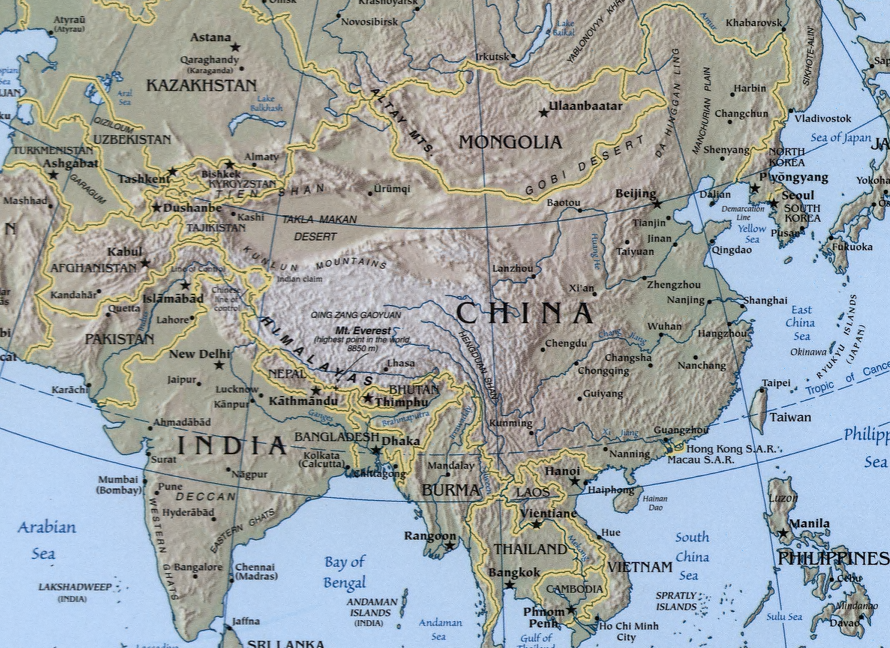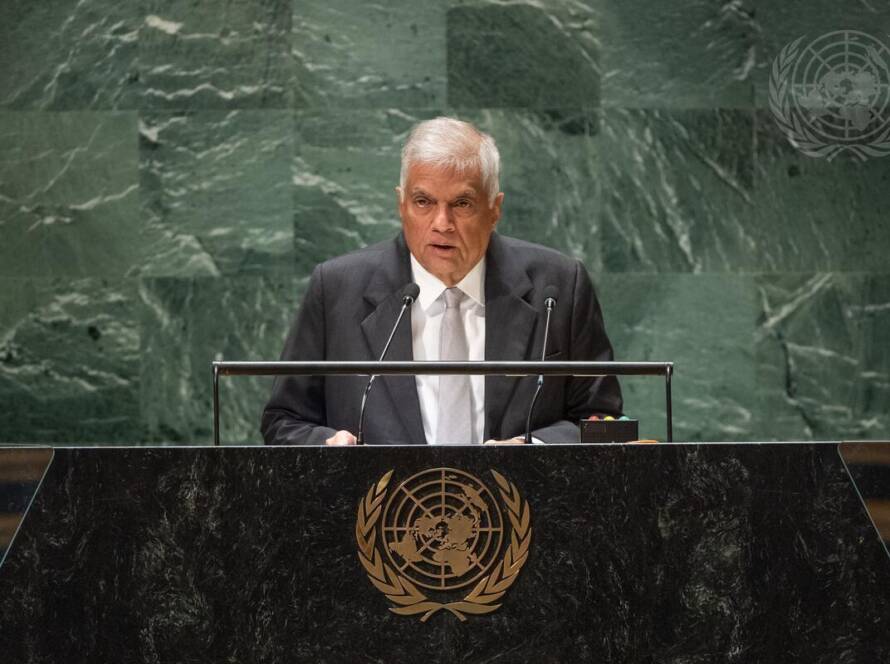By Ramindu Perera
“Is there any reason why we in India should inherit the age-long rivalry of England against Russia? That is based on the greed and covetousness of British imperialism and our interests surely lie in ending this imperialism and not in supporting and strengthening it”
Jawaharlal Nehru (1929)
The recent meeting between Indian Prime Minister Narendra Modi and Russian President Vladimir Putin in Moscow was among the prominent news featured last week in the international media.Modi’s two-day Russian visit which coincided with a NATO summit convened in Washington was his first foreign tour after being elected as Prime Minister for the third consecutive term.
The joint statement issued by the two countries following the meeting referred to the relationship between Russia and India as a “special and privileged strategic partnership.” The statement also detailed several areas, from defense cooperation to economic partnerships, in which the countries anticipate collaborating.
The Ukraine Factor
The affirmation of Russia’s strategic alliance with India comes at a time when Western hostility against Putin is intensifying. This is the first time Modi toured Russia after the outbreak of the conflict. Ukraine war was the theme that dominated the NATO summit held in Washington where leaders of the alliance pledged continued assistance to Ukraine.
The summit also highlighted the “danger” of the consolidating relationship between Russia and China. The United States State Department spokesperson stated that the US has shared “concerns” over Modi’s visit with India at the private level.
Ukrainian President Volodymyr Zelenskyy was more open in expressing his disapproval. Posting a message on X he stated:
“It is a huge disappointment and a devastating blow to peace efforts to see the leader of the world’s largest democracy hug the world’s most bloody criminal in Moscow on such a day.”
Nevertheless, the visit of the Indian Prime Minister, who is considered to be an ally of the United States, denotes a victory for Putin on the diplomatic front. In the aftermath of the Russian invasion of Ukraine in 2022, the Western Bloc comprising the US and countries of the European Union launched a relentless campaign to isolate Russia. Combining economic sanctions on Russia with diplomatic boycotting has been a prominent feature of this strategy. Thus, several resolutions were brought to the United Nations General Assembly condemning Russia and demanding the withdrawal of Russian troops from Ukraine.
However, it seems that even after two years since the invasion, the attempt to pit the rest of the world against Russia has not yielded impressive results. Many countries in the Global South have shown reluctance to adhere to the Western narrative of the conflict. Emerging countries in the Global South have opted to maintain friendly relations with Russia, despite the call from the West to adopt a more aggressive stance. The Indian stance reflects this broader phenomenon.
For instance, India has abstained during all the UN General Assembly votes that condemned Russia. Furthermore, notwithstanding Western protests, India continued to import oil from Russia which has proven to be a mutually beneficial deal for both countries.
40% of Indian oil imports now come from Russia. While this has provided a market to Russian oil companies in the aftermath of Western sanctions, India has benefited through discounted prices. The official Indian stance on the Ukraine invasion seems to be in line with the position held by other emerging countries in the Global South like China, South Africa and Brazil — a “neutral” stance not condemning or endorsing Russia’s invasion while advocating a peaceful settlement.
Historic Legacy
Though economic concerns like having access to cheaper oil imports, and defense matters such as Russia being a close military supplier of India might have influenced India’s decision to retain friendly relations with Russia, the decision also reflects the historic legacy that overshadows the relations between the two nations.
Fraternal relations between India and Russia date back to the early 20th century. Jawaharlal Nehru was an admirer of the Soviet Union even before he became the Prime Minister of Independent India. In a book written in 1929, Nehru complimented Russia for its economic, social, cultural and educational advancements following the 1917 revolution.
After gaining independence, India developed stronger diplomatic, political and economic ties with the Soviet Union. This relationship was reflected when Nehru declined to denounce the 1956 Soviet invasion of Hungary, and the USSR not taking the side of China despite both being communist countries during the Indo-China border conflict in 1962. Furthermore, the USSR defended the territorial claims of India over Kashmir, provided military assistance during the Bangladesh independence war in 1971 to deter possible Western intervention in favor of Pakistan, and helped India to develop its nuclear defense system.
Though the times have changed since then, and the days of the Soviet Union have long gone, friendly relations between the two countries have shown great resilience. When asked about continued economic ties between India and Russia despite undermining the effect of Western sanctions against Russia, Indian External Affairs Minister S. Jaishankar told a German newspaper in March 2024 that Europe should understand that India cannot have a view of Russia that is identical to the European one. He further stated:
“[…] If I look at the history of India post-independence, Russia has never hurt our interests. The relations of powers like Europe, the US, China or Japan with Russia, they have all seen ups and downs. We have had a stable and always very friendly relationship with Russia. And our relationship with Russia today is based on this experience.”
During the Cold War, the Indian national interest to be developed as a modern industrial nation without submitting to Western dominance found an ally in the Soviet Union which was seeking allies in the third world to counter their Cold War rival. The legacy flowing from this history seems to have some resonance in present times too.
The Dual Strategy
India’s defiance to identify with the Western line also raises an important question about the nature of contemporary Indo-Western relations. A visible shift in Indian foreign policy can be seen following the end of the Cold War with increased collaboration with the Western bloc, particularly the United States.
Partly, this shift was informed by economic concerns. After liberalizing the economy in the early 1990s, India sought a reproachment with the United States to gain benefits in terms of investment and trade. In the post-Cold War period, US emerged as India’s largest export destination, and US investments in India continued expanding.
However, the Indian approach towards the US is also influenced by defense and geopolitical concerns. The long-term regional rivalry between China and India that dates to the times of the Cold War has provided a common ground for increased Indo-US alignment. An interesting development therefore has been India replacing Pakistan as the strategic ally of the US in the Indian sub-continent — and a part of the Pakistan establishment leaning towards China.
At the moment, India participates in the Quadrilateral Security Dialogue (QUAD) initiative, a platform revived in 2017 as a collaboration among the United States, Australia, and Japan to check the Chinese influence in the Indo-Pacific. The QUAD is seen as an integral part of the US Indo-Pacific strategy aiming to restrict the advent of China.
But at the same time, India also participates in the BRICS initiative that brings major emerging countries in the Global South together. Unlike QUAD, BRICS is mainly an economic platform. It also includes China that seeks to end the Western dominance in the world’s international order by promoting multi-polarization against the unipolarity dominated by the Western bloc. Furthermore, India is a member of the Shanghai Cooperation Organization (SCO), a platform focusing on defense and military collaboration that includes China and Russia.
Therefore, despite the deepening of Indo-US relations, it seems that India has been careful not to become a full-fledged ally of Washington like Japan or South Korea. India’s Russian stance is an instance that clearly demonstrates the desire of the Indian political elite to safeguard independence in decision-making.
The Indian approach is defined by a certain duality. We are living in a period of transition: still characterized by the hegemony of the West, but also the emergence of a multipolar order that has the potential of undermining the foundations of Western hegemonic power. India seems to be playing on both sides of the contradiction, without compromising its autonomy. How long this dual strategy can be sustained in a world which sees a deepening of tensions between the West and the emerging rest might be something interesting to observe.
Ramindu Perera is a lecturer attached to the Department of Legal Studies, the Open University of Sri Lanka. He can be reached at raminduezln@gmail.com.
Factum is an Asia-Pacific focused think tank on International Relations, Tech Cooperation, Strategic Communications, and Climate Outreach accessible via www.factum.lk.
The views expressed here are the author’s own and do not necessarily reflect the organization’s.


